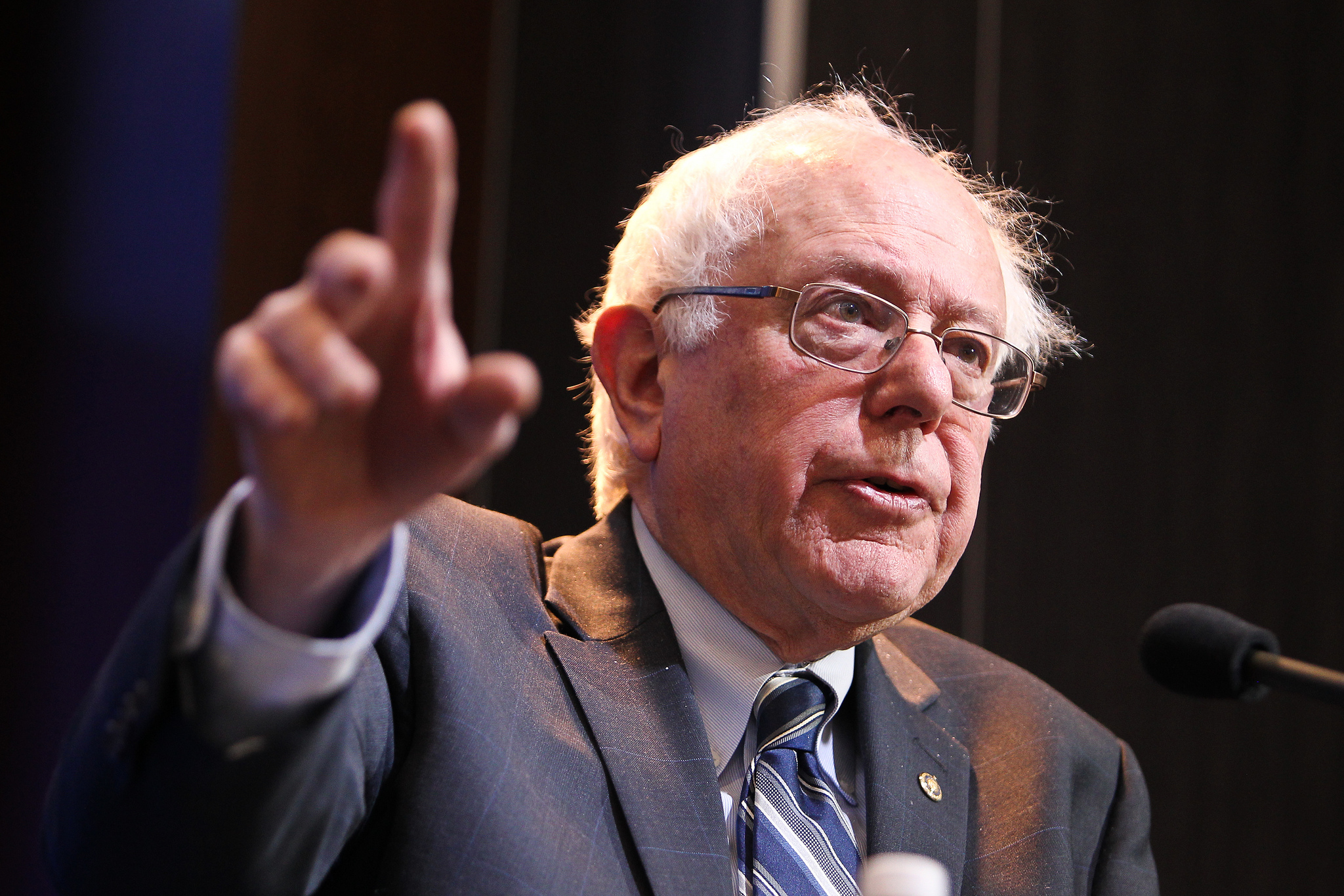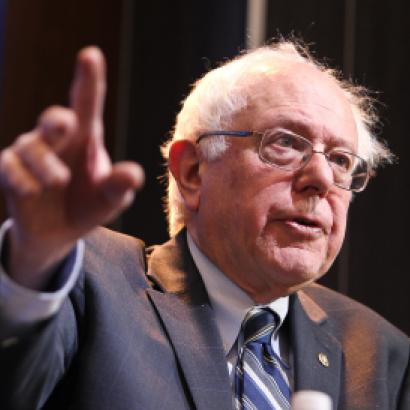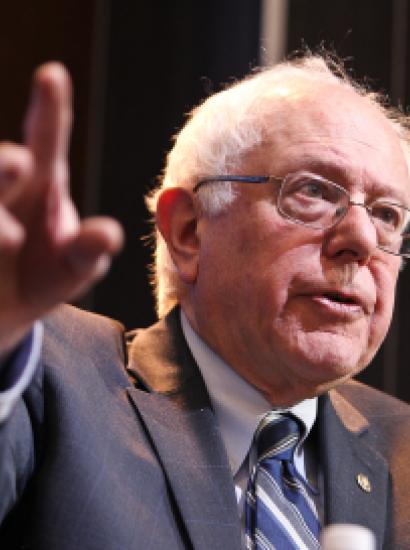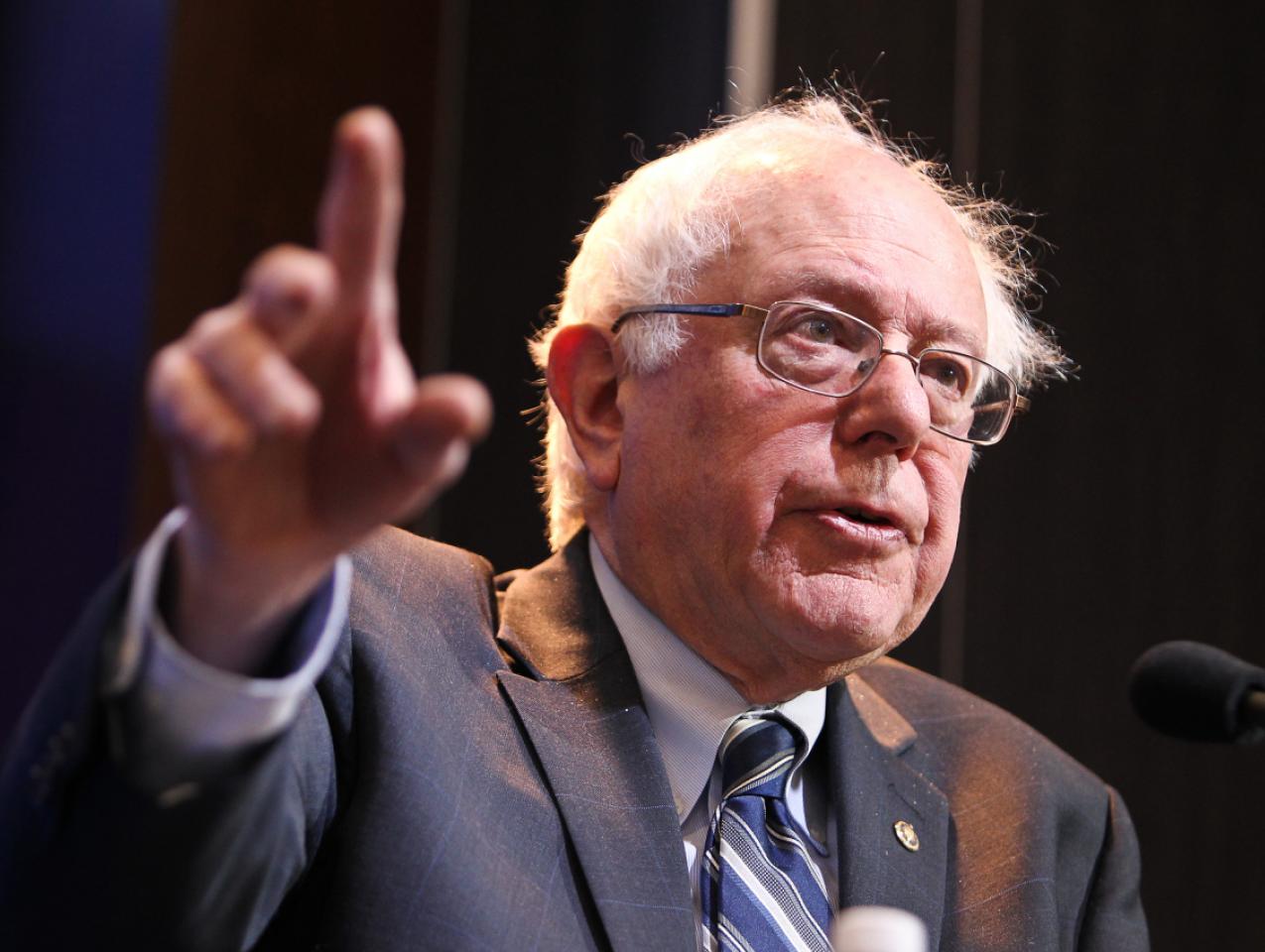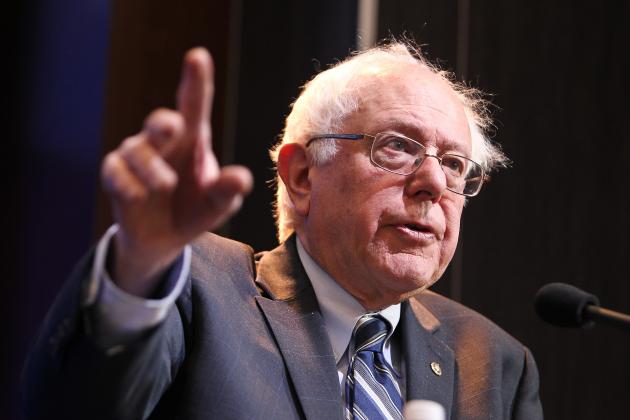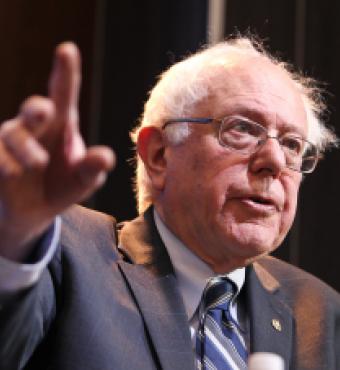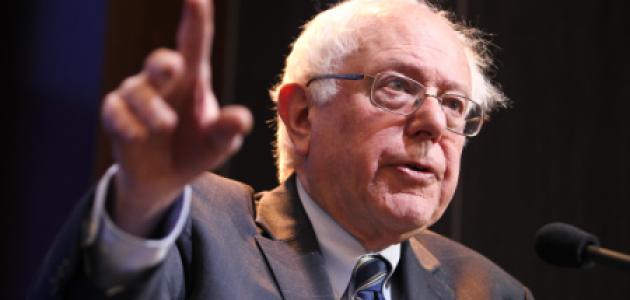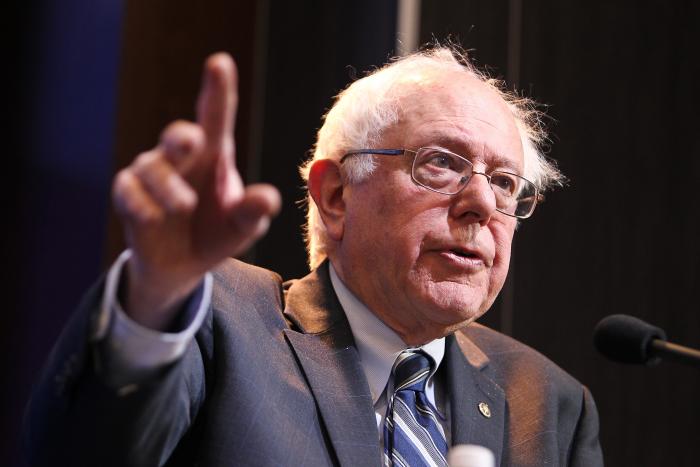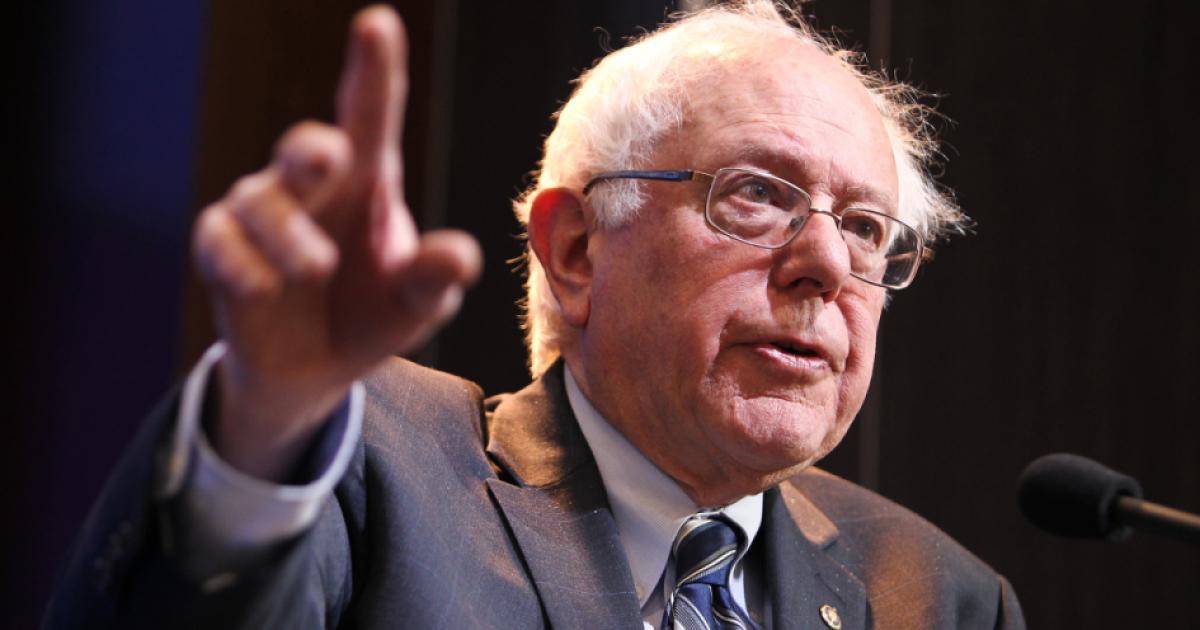- Politics, Institutions, and Public Opinion
- Campaigns & Elections
- State & Local
- California
With distance comes perspective. And though it hasn’t been all that long since Californians went to the polls, here are some thoughts with regard to this week’s primary in the Golden State, one of 14 states to participate in this year’s “Super Tuesday” of voting, coast to coast.
First, the excitement factor—or lack thereof.
Despite advancing the primary three months from its usual slot on the first Tuesday in June, Californians weren’t feeling the buzz come the final day to cast a ballot (though they did “feel the Bern”—more on that in a moment).
According to this survey coauthored by the Hoover Institution and Stanford University’s Bill Lane Center for the West, nearly seven out of ten Californians polled a week before Super Tuesday said that advancing the primary to the earlier starting date—the idea being it would give the Golden State greater influence in the presidential selection process—didn’t make them more likely to vote (28% said it did).
What else did that survey tell us about California?
First, it reinforces the perception—no, let’s make that the reality—of California as a deep-blue Democratic fortress.
Vermont senator Bernie Sanders and his “democratic socialist” approach to public policy may prompt talk of a down-ticket disaster for Democrats nationwide should he end up as the party’s nominee, but in California he’s no different from his fellow contenders in that he’d crush President Trump in a statewide vote.
A hypothetical Sanders-Trump matchup came in at 59% to 31% in favor of the Democrat, the same results in a choice between Trump and former vice president Joe Biden. The weakest of the six Democrats surveyed was former New York City mayor Michael Bloomberg, with 51%—still good enough for a 19-point win over Trump (only once in California’s last seven presidential elections has a Republican nominee finished 10 points or less behind the Democrat on the ballot).
Second, the poll confirms what’s on the minds of Californians these days: the letter “h.” Asked which issues they’d like to see a Democratic president address for California’s benefit, the poll’s 1,507 respondents chose: homelessness (33%) and housing (20%), followed by improving California’s infrastructure (19%), protecting the state’s natural resources (14%), enhancing California’s homeland security (9%), and altering state and local tax deductions (6%).
Third, the poll confirms that Californians aren’t in a swell mood in the first quarter of 2020—not a surprise for a state coping with a spreading coronavirus and a return to drought conditions.
In all, 63% of Californians surveyed said the nation is on a “wrong track”; 39% believe the US economy is getting worse (28% said better; 28% said “about the same”). Trump’s job disapproval clocked in at 63%; Congress received a 65% thumbs-down.
That attitude carries over to opinions of California’s political leaders—maybe not a negative mindset, but a decided “meh.”
One might assume that San Francisco resident and House Speaker Nancy Pelosi, the highest-ranking Democrat in the federal government, would do well in her deep-blue state. Pelosi’s job approval was a so-so 48%—two points better than Sen. Kamala Harris and six points better than Sen. Dianne Feinstein. Gov. Gavin Newsom’s job approval: the same 46% as Harris.
Finally, there’s one poll number which suggests that, whatever the outcome of their search for a presidential nominee, the Democratic Party wants a unicorn to round out the ticket.
Asked for their choice of a vice presidential running mate, Californians responded with: former First Lady Michelle Obama (31%), followed by Harris (19%), Minnesota senator Amy Klobuchar (18%), and former Georgia gubernatorial candidate Stacey Abrams (13%).
That same question was bad news for Newsom. Only 8% of Californians chose their governor as their top pick for vice president, putting Newsom in the same neighborhood as the rather peculiar spiritual guru Marianne Williamson (6%). In a separate listing of California Democrats as vice presidential prospects, Newsom finished fourth behind Harris (39%), Rep. Adam Schiff (21%), and billionaire activist Tom Steyer (18%).
Now, some thoughts about Tuesday’s results in California (still being tallied, if you’re reading this before early April, as it takes a month to certify results in the Golden State).
It’s easy to attribute the final outcome—an easy Sanders win, despite the late Biden surge elsewhere across the nation—to calendar oddities (give Biden a full week after his South Carolina bump and maybe it’s a different outcome in California).
But another factor that can’t be ignored: persistency.
Sanders waged a hard-fought battle against Hillary Clinton in 2016’s Democratic primary in California (in early June that year), a Golden State upset being his only chance at denying her the nomination. Sanders didn’t win that particular battle (Clinton prevailed by 12%), but his loyal army lived to fight another day in California.
Going into Super Tuesday, Sanders was better organized across the Golden State than most rivals (he had 20 field offices in California to Biden’s one). His campaign, which claimed to knock on one million doors in the state and place five million phone calls to potential California voters, was a study in sweat equity.
Sanders’s win was also a reminder that cash is not always king in California politics.
To the adage that a fool and his money are soon parted, two candidates were especially foolish when it came to approaching California voters: fellow billionaires Bloomberg and Steyer (the latter being the only Californian left in the race and who, naturally, dropped out three days before the race returned to his home state).
As of a week before the primary, Bloomberg had dropped $63.2 million on California television ads and Steyer an additional $27.2 million (these numbers will climb once the final week of television buys is calculated). Sanders spent just $6.3 million on California’s airwaves, yet he will walk away with the most delegates (Steyer, by the way, spent more than $250 million on his presidential quest and doesn’t have a delegate to show for the effort).
The failure of 2020’s billionaire tandem in California—Bloomberg a distant third-place finish; Steyer a dropout—is keeping with the Golden State tradition of personal wealth backfiring spectacularly in high-stakes contests.
Meg Whitman, the former eBay and Hewlett Packard CEO, spent $144 million of her fortune, only to lose badly to Jerry Brown in California’s 2010 governor’s race (she failed to receive 41% of the vote). In 1998, airline executive Al Checchi finished second in the Democratic gubernatorial primary despite a personal investment of a then-record $40 million, thus earning him the sobriquet “Al Checkbook.” And in 1994, Michael Huffington spent $27.5 million in a losing effort against Sen. Dianne Feinstein.
There are exceptions to the rule: Arnold Schwarzenegger, hardly a pauper, twice won statewide elections (then again, wealth maybe isn’t the first thing that comes to mind when thinking of the thick-accented, stogie-smoking, bodybuilder actor-turned-politician).
Will the billionaires’ bomb and Sanders’s win change how future presidential campaigns are to be waged in California? We’ll see in 2024.
However, there is a debate to be had about California’s spot on the primary calendar.
Important as the Golden State was to Sanders’s delegate haul on Super Tuesday, it was but one of several narratives that night. Biden’s surge, Bloomberg’s struggles, and Massachusetts senator Elizabeth Warren’s collapse (she finished an embarrassing third in her home state) all competed for attention Tuesday night.
Now, consider what might have happened had California stayed in its normal June slot for this election.
Four states and the District of Columbia vote on June 2 (215 pledged delegates at stake, barely one-half those of California). Add California to that slate and the remaining candidates would have two weeks, following the May 19 vote in Kentucky and Oregon, to give the Golden State the close-up it covets every four years (yes, they’d also be campaigning in New Jersey, the biggest June prize).
Granted, that’s Monday-morning quarterbacking.
So what audible does California call next, as it strives to be relevant in national elections?







